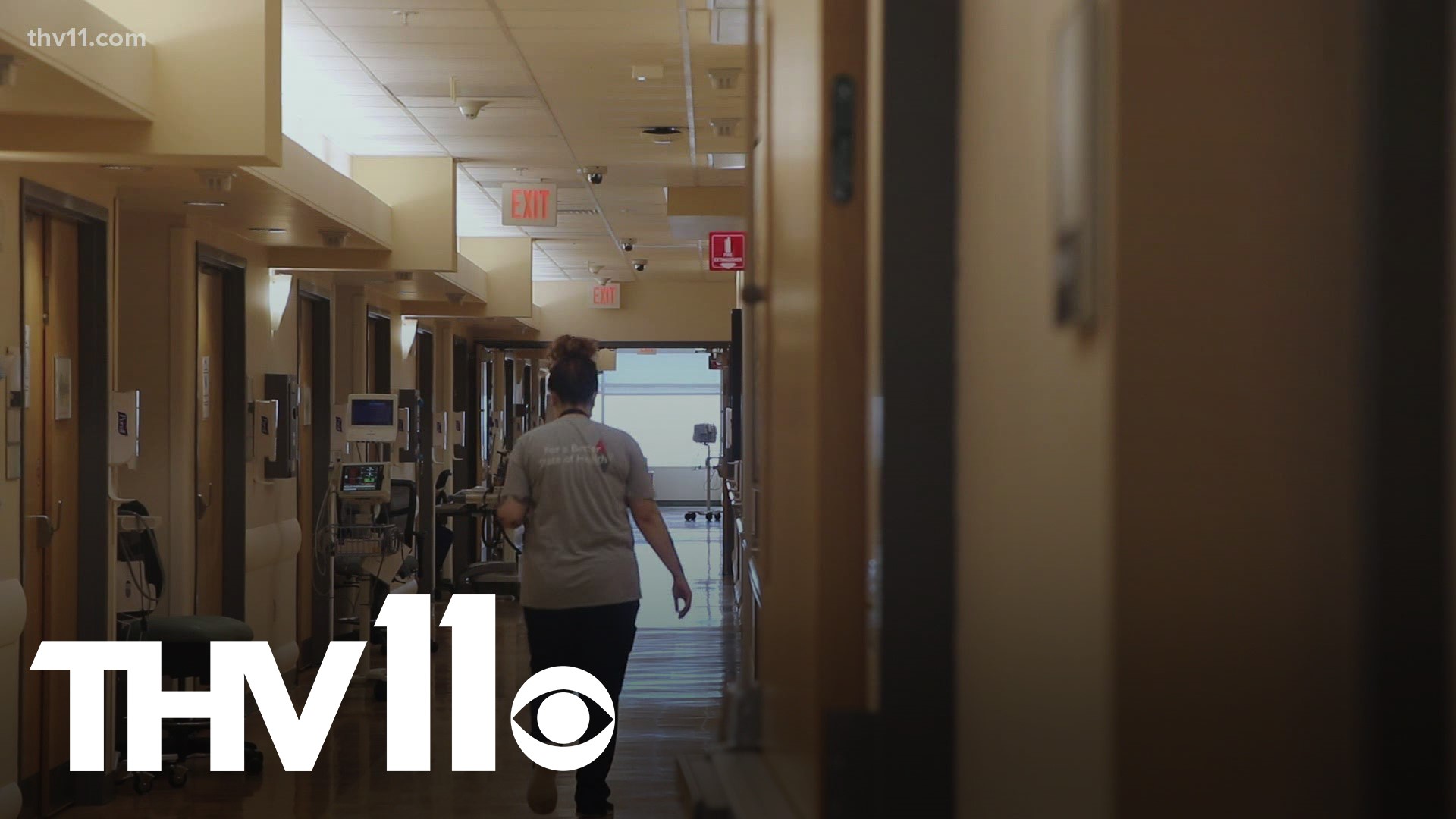LITTLE ROCK, Ark. — While COVID-19 cases continue to climb and patients are in critical condition, hospitals are struggling with staffing.
It's an issue that's been happening for years, but the current climate is making it worse.
We've seen this hit every industry throughout the pandemic and now it's taking a toll on those who are caring for some of the sickest people in our state.
"To face a staffing challenge at the same time you're starting to see your surge and your numbers increase is really concerning," UAMS Chief Nursing Officer, Trenda Ray said.
From UAMS to Baptist Health, healthcare professionals are working overtime as more patients come in and less hands are there to help out.
"We've been able to live at a certain level and it stretches you but the COVID burden of care and the number of cases, that's caused our organization to be stretched even further," Greg Crain, President of the Baptist Health Center in Little Rock, said.
Ray said every position has been stretched, from respiratory therapists to physicians to patient care techs.
"I know we are down 40 PCT's, our patient care techs right now, just on our inpatient areas," she said.
But the biggest shortage is in nurses, the position that Ray and Crain both described as the 'backbone' and 'heart' of healthcare.
"For 26 years there's been a shortage of nurses, the pandemic has just exasperated that problem," Crain said.
"This is worse than I've ever seen it and I hope we never see it again in our professional careers," Ray said.
According to Crain, nursing positions have the most vacancies across the entire Baptist Healthcare System.
"You've got much more sick patients. You've got much more demands in certain areas of the country. You've got nurses that go to travel, which we have used in the past to help augment, so you've got that resource that's now stressed even thinner," he said.
The market to hire nurses is now even more competitive and everyone's fighting for the same limited resources, according to Ray.
"One of our ICU's is down nearly 20 positions. Some of our other care areas are down as many as 12 positions," she said.
As the shortages continue to pose issues, healthcare professionals ask the community for support.
"The first is get vaccinated. The second is love your healthcare community," Crain said.
Healthcare professionals worry if the community doesn't do their part, it will only get worse from here.

